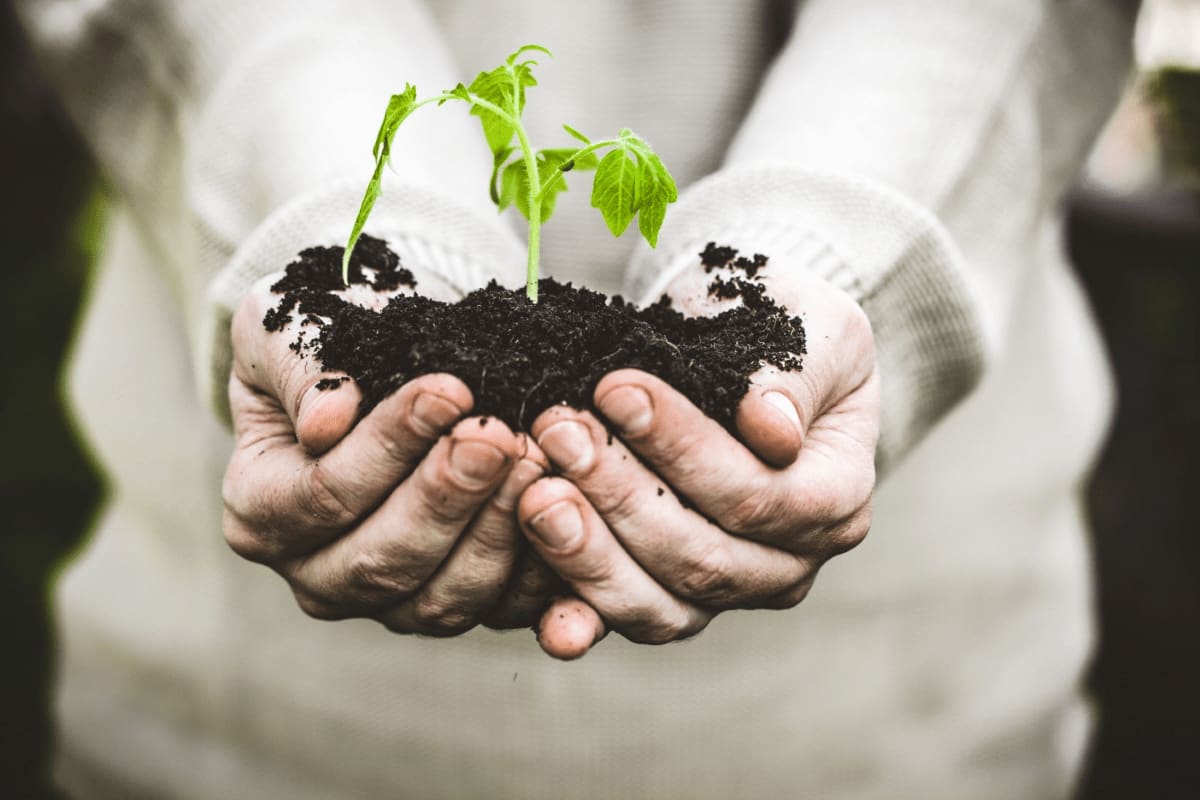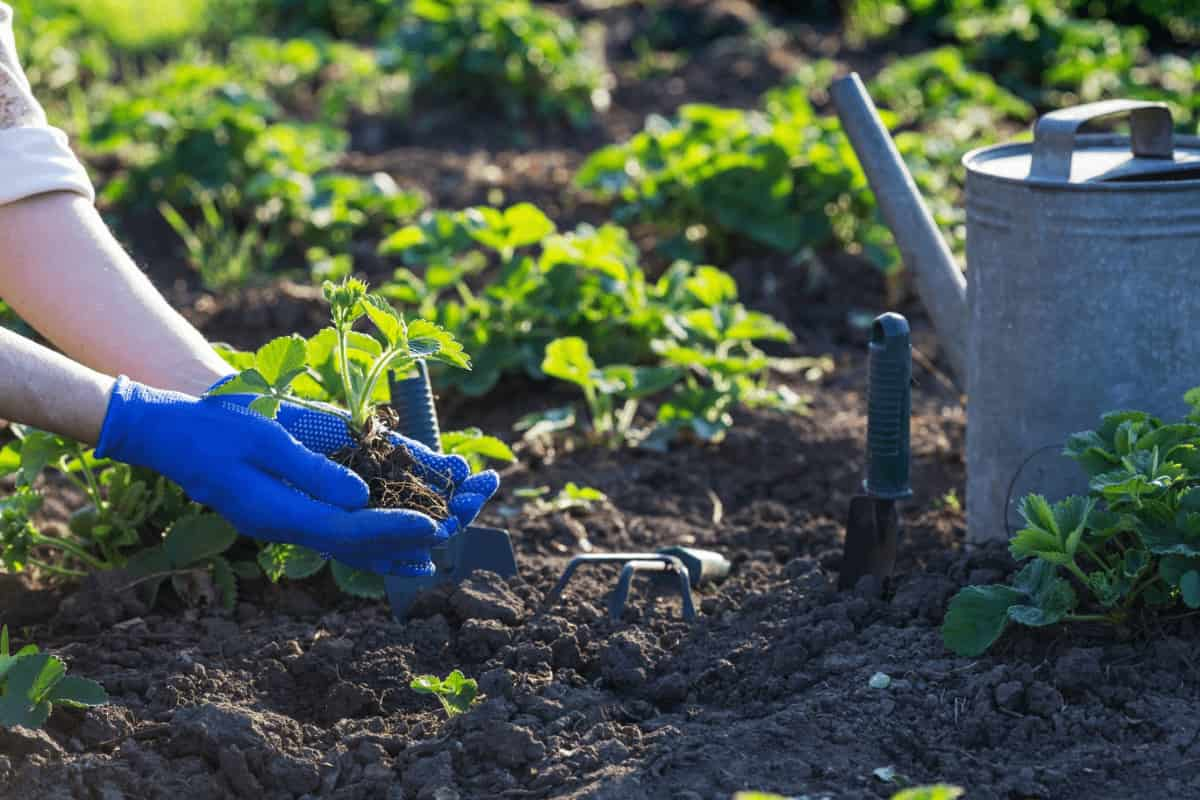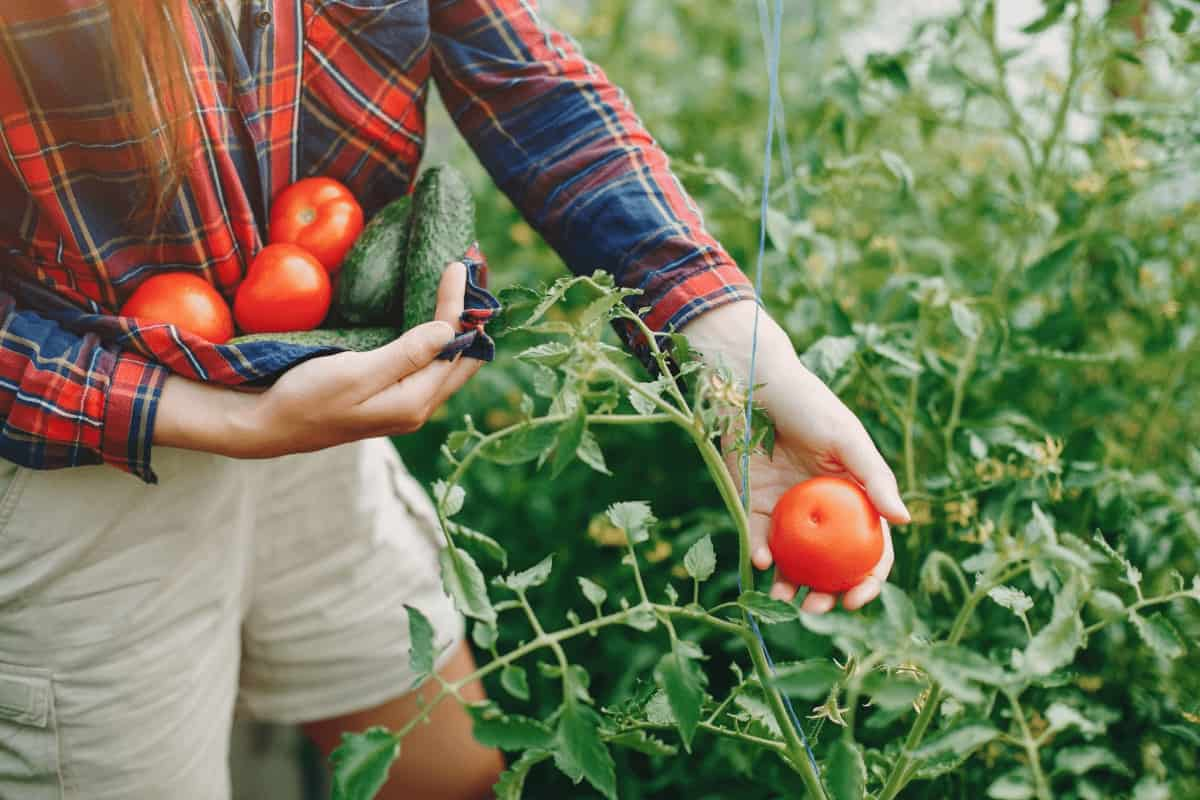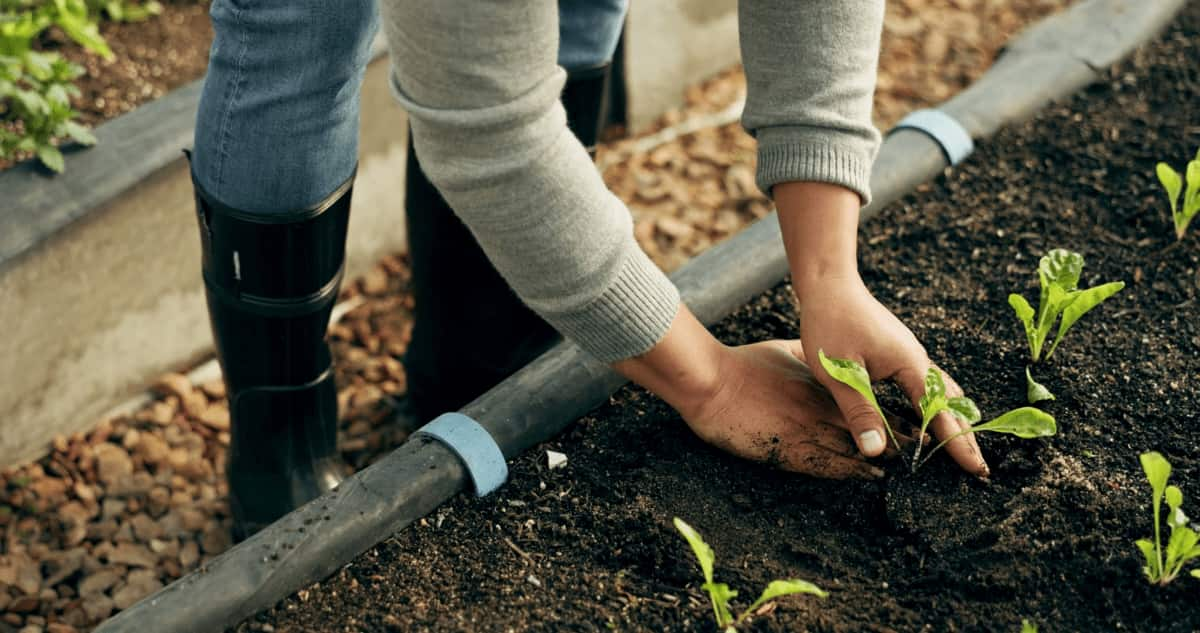Biochar is a powerful tool for enhancing soil fertility and water retention in home gardens. Derived from pyrolysis – converting organic materials into charcoal through high heat and low oxygen conditions – biochar has been used for centuries to improve agricultural practices. When introducing biochar into your home garden, there are several options available. You can purchase ready-made biochar products or make your own at home using organic waste such as wood chips or crop residues.

Biochar to Enhance Soil Fertility and Water Retention in Home Gardens
How Biochar Helps Soil and Water in Gardens
Biochar, a charcoal made from biomass materials like wood chips or crop residues, has gained popularity among gardeners for improving soil fertility and enhancing water retention in home gardens. Benefits of biochar is its ability to increase the nutrient-holding capacity of soil. When added to garden beds, biochar acts as a sponge, absorbing nutrients and preventing them from leaching away with irrigation or rainfall.
This means plants have better access to essential minerals, and organic matter remains in the root zone longer. Additionally, biochar improves soil structure by creating tiny pores that hold onto moisture. These pores act as reservoirs during dry spells, releasing water gradually back into the surrounding soil when needed.
As a result, plants experience less stress from drought conditions, and homeowners can conserve precious water resources. Moreover, biochar provides an ideal habitat for beneficial microorganisms in the soil. These microbes play crucial roles in breaking organic matter into plant-available nutrients while suppressing harmful pathogens that can damage crops. Biochar promotes microbial activity and creates a healthier ecosystem within your garden’s soil.
How to Use Biochar in Your Home Garden
Using biochar in your home garden is a simple and effective way to enhance soil fertility and water retention. First, determine the amount of biochar needed for your garden. The general rule of thumb is to apply about 10% by volume of biochar to your soil. This can vary depending on the type of soil you have and the specific needs of your plants. Next, mix the biochar into your soil thoroughly.
You can spread it evenly over the surface and use a rake or spade to incorporate it into the top few inches of soil. Be sure not to pile too much biochar in one area, as this could create an imbalance. After mixing in the biochar, water your garden as usual. Biochar has excellent water retention properties, which will help prevent moisture loss from evaporation and improve overall water efficiency in your garden.
In case you missed it: Growing Longan Trees: How to Plant and Care for Longans in Your Garden

Add compost or organic matter and biochar to maximize its benefits when incorporated into your soil. This will provide additional nutrients for plant growth and further improve soil structure.
How to Make Biochar at Home for Gardens
Start by collecting organic waste material such as wood chips, branches, or agricultural residues. Avoid using treated wood or materials with chemical additives. Next, you’ll need a container that can withstand high temperatures, like a metal barrel or an old oil drum. Make sure it has a lid to control airflow. Cut the organic waste into small pieces and fill the container about three-quarters.
Leave some space for air circulation during the process. Place the container in a safe outdoor area away from flammable objects or structures. Ignite the top layer of organic material using kindling or newspaper and let it burn until flames appear consistently across the surface. Once flames have subsided and smoke starts to billow out of the top vents, if your container has them, close off most of these openings but allow some airflow for oxygen supply through one vent only (this helps convert biomass into biochar instead of ash).
Continue monitoring until no visible flame or smoke emerges from your chosen vent. The process typically takes several hours, depending on the materials’ temperature and moisture content. Allow time for cooling before opening your homemade biochar kiln. It should be ready when cool enough not to produce steam upon contact with water.
Biochar’s Impact on Microbes in Garden Soil
When gardening, healthy soil is the foundation for thriving plants. One of the key components of a vibrant soil ecosystem is the presence of beneficial microbes. Incorporating biochar into garden soil can have a significant impact on microbial activity. The porous structure of biochar provides an ideal habitat for beneficial microbes to thrive. It offers them shelter from predators and provides ample surface area for colonization.
Biochar acts as a sponge, soaking up excess moisture and releasing it slowly. This creates an environment with optimal moisture levels for microbial growth and activity. Furthermore, biochar has been found to promote the proliferation of beneficial bacteria and fungi in the soil. These microorganisms help efficiently break down organic matter and improve plant nutrient availability.
How to Keep Nutrients with Biochar in Garden Soil
One of the many benefits of using biochar in your home garden is its ability to retain nutrients in the soil. Adding biochar to your garden beds acts like a sponge, soaking up and holding onto essential plant nutrients. To maximize the nutrient-holding capacity of biochar in your garden soil, you can take a few key steps. First, properly charge or activate your biochar before adding it to your garden beds.
This involves soaking the biochar in a mixture of compost tea or organic fertilizer for several days to allow it to absorb beneficial microbes and nutrients. Once charged, evenly distribute the activated biochar throughout your garden beds, ensuring it is well mixed with the existing soil. This will help prevent nutrient stratification and ensure that all parts of your garden receive equal access to the stored nutrients within the biochar.
In case you missed it: How to Grow Sesame Plants in Your Garden and Harvest the Seeds

In addition to proper mixing, regularly amending your garden soil with organic matter will help replenish any nutrients that the biochar may have absorbed over time. By maintaining a balanced approach between adding new organic matter and allowing for some nutrient release from the biochar, you can create an optimal environment for plant growth.
How Biochar Saves Water in Home Gardens
One of the many benefits of using biochar in home gardens is its water-saving ability. A biochar acts as a sponge, absorbing and holding onto moisture, preventing it from evaporating quickly. When added to garden soil, biochar helps create a more porous and well-draining environment. Its microscopic pores and channels allow water to infiltrate the soil instead of running off the surface. This reduces water waste and ensures that plants have access to a steady moisture supply supply.
Additionally, biochar aids in retaining nutrients within the root zone by reducing leaching. It forms stable bonds with essential plant nutrients, preventing them from being washed away by excessive watering or heavy rainfall. By improving soil structure and enhancing moisture retention capabilities, biochar allows gardeners to reduce their dependence on irrigation systems. This saves water, reduces utility bills, and conserves valuable resources.
How to Improve Garden Soil with Biochar
Biochar enhances garden soil by increasing its ability to retain nutrients. When added to the soil, biochar acts like a sponge, absorbing and holding onto essential elements that plants need to thrive. This means less fertilizer runoff and more available nutrients for your plants. Another benefit of using biochar in gardens is its water-saving ability. Biochar has excellent water-holding capacity, which means it can prevent moisture loss from the soil. By retaining water at the root zone, plants have better access to hydration during dry periods.
In addition to its nutrient retention and water-saving properties, biochar also promotes beneficial microbial activity in the soil. Its porous structure provides a habitat for beneficial bacteria and fungi that contribute to healthy plant growth. To improve your garden soil with biochar, mix it into the top few inches of your existing soil or create planting beds enriched with biochar.
How Biochar Helps Stop Soil Erosion in Gardens
Soil erosion can be a major problem in gardens, losing valuable topsoil and nutrients. However, biochar offers a solution that helps prevent soil erosion and improves soil health. When added to garden beds or mixed into the soil, biochar creates small pockets that help hold moisture and bind particles together. This makes it harder for rainwater or irrigation to wash away the top layer of soil.
In case you missed it: Backyard Garden Shed Ideas: DIY to Build a Small Backyard Garden Shed on a Budget

Biochar also has impressive water retention properties, further aiding in preventing erosion. It acts like a sponge, absorbing excess moisture during heavy rainfall and slowly releasing it into the ground as needed. By keeping water in the root zone instead of allowing it to run, biochar helps maintain healthy growing conditions while minimizing erosion risks.
How to Change Soil pH with Biochar in Gardens
Soil pH is a crucial factor that determines the health and productivity of your plants. If your garden soil has an imbalanced pH, it can hinder nutrient availability and affect plant growth. To change soil pH with biochar, start by testing the current pH level of your soil using a simple DIY test kit. Once you have determined the pH level, you can calculate how much biochar you need to apply.
Before applying biochar to change soil pH, it’s important to prepare it properly. You should charge it with specific nutrients depending on what type of plants you are growing and what deficiencies they may have. To effectively incorporate biochar into your garden soil to change its acidity levels, mix it thoroughly into the top few inches of topsoil or till it into planting holes before sowing or transplanting seedlings. Ensure not to apply excessive amounts, as that could lead to nutrient imbalances.
How Biochar Works for Different Garden Soils
Biochar is a versatile soil amendment that can work wonders in different types of garden soils. Biochar absorbs and releases moisture slowly, ensuring your plants receive a consistent water supply even during dry spells. On the other hand, in clay soils where drainage can be an issue, biochar helps to loosen the compacted particles and create channels for air and water movement.
This improves root penetration and prevents waterlogging. Biochar still plays a vital role for those lucky enough to have loamy soils already – well-drained with good nutrient-holding capacity. It enhances the soil’s ability to retain nutrients by acting as a reservoir. The porous structure of biochar provides ample surface area for beneficial microbes to colonize and thrive.
How To Use Biochar for Organic Gardening
Biochar, a charcoal made from organic materials like wood or agricultural waste, can greatly benefit organic gardens. Its porous structure acts as a sponge, absorbing nutrients and water while providing a habitat for beneficial microbes. To use biochar in the organic garden, incorporate it into your soil. Mix it thoroughly with compost or other organic matter before planting. This will ensure that the biochar is evenly distributed and accessible to plant roots.
Another way to utilize biochar is by adding it directly to your compost pile. The compost releases nutrients that are then captured by the biochar, creating a nutrient-rich amendment for your garden. In addition to its role in nutrient retention, biochar also helps improve soil structure and fertility over time. By increasing the porosity of heavy clay soils or enhancing moisture-holding capacity in sandy soils, biochar creates an optimal environment for plant growth.
In case you missed it: Growing Vanilla Beans in Your Garden: A Step-by-Step Guide for Beginners

Furthermore, using biochar can reduce water usage in your garden. Its ability to retain moisture means less frequent watering is needed while maintaining healthy plants. This not only saves you time but also conserves this precious resource. It’s important to note that different types of soils may require varying amounts of biochar for optimal results.
How to Add Biochar to Compost for Healthy Garden Soil
To incorporate biochar into your compost, start by collecting organic materials such as kitchen scraps, yard waste, and plant trimmings. These can be combined in a compost bin or pile with other compostable items like coffee grounds and eggshells. Once your compost mix starts, sprinkle a layer of biochar on top. It’s best to use finely ground biochar for easier incorporation into the compost. Mix the biochar into the top few inches of the pile using a pitchfork or shovel.
As the organic matter decomposes and breaks down over time, it will interact with the biochar, allowing nutrients from the compost to bind to its porous structure. This process helps retain valuable nutrients in the soil rather than leaching away during watering or heavy rainfall. Additionally, incorporating biochar into your compost enhances its ability to retain moisture. The porous nature of biochar allows it to hold onto water molecules like a sponge, gradually releasing moisture back into the soil as needed by plants.
How Biochar Boosts Plant Growth in Home Gardens
When added to garden soil, biochar acts as a sponge, holding onto essential nutrients and moisture that plants need to thrive. This water retention property helps prevent drought stress in plants during dry spells. Additionally, biochar provides a habitat for beneficial microbes that aid in nutrient uptake by plant roots.
Not only does biochar enhance water and nutrient availability, but it also improves soil structure. Its porous nature allows air and water to circulate freely within the soil profile, creating an ideal environment for root development. With healthier roots, plants can absorb more nutrients efficiently and grow vigorously. To maximize the benefits of biochar on plant growth, it’s essential to incorporate it into your gardening routine properly.
Frequently Asked Questions (FAQ) on Soil Fertility and Water Retention
How Much Biochar Should I Use in My Home Garden?
The amount of biochar you should add to your garden depends on the size and condition of your soil. As a general guideline, you can start by applying 5-10% by volume of biochar to your existing soil.
How Often Should I Apply Biochar to My Garden?
Biochar has long-lasting effects on the soil structure and fertility, so it does not need frequent application like other fertilizers. In most cases, a single application can provide benefits for several years. However, adding another layer of biochar might be beneficial if you notice any decline in plant growth or water retention over time.
Is There Any Risk of Overusing Biochar?
While there is generally no risk of overusing biochar to harm plants or the environment directly, excessive amounts may alter certain nutrient ratios within the soil, leading to imbalances that could negatively impact plant health. Remember that each garden is unique and may have different requirements based on climate conditions and soil composition.
In case you missed it: Terrace Gardening Design and Best Terrace Gardening Plant Ideas

Conclusion
Biochar is a highly beneficial and versatile tool for enhancing soil fertility and water retention in home gardens. Its ability to improve nutrient availability, promote healthy microbial activity, save water, prevent erosion, and even adjust soil pH makes it an invaluable asset for gardeners of all levels. Embrace the power of biochar and unlock the full potential of your home garden. With its numerous benefits and sustainable nature, this little black carbon can transform your plants’ health and overall garden’s success.
- Where to Place Indoor Plants in Your Home
- How to Grow Tomatoes Organically at Home: A Comprehensive Guide
- Organic Gardening on a Budget: Low-Cost Methods and Materials
- Gongura Seed Germination and Planting Methods
- Cabbage Seed Germination and Selection
- Broccoli Seed Germination and Selection
- Asparagus Seed Germination and Variety Selection
- Seasonal Flower Gardening: Best Practices for Spring, Summer, Fall, and Winter
- How to Grow Hibiscus from Flower
- Plantation Ideas for Home Decoration: A Beginners Guide
- Flower Garden Designs and Layouts for Beginners
- Planting and Spacing Techniques in Papaya: A Beginner’s Guide
- Growing Gold: Essential Techniques for Planting Pineapples
- How to Make Kalanchoe Plant Bushy: Home Remedies and Solutions
- 11 Reasons Why Your Gardenia is Not Blooming: Home Remedies and Solutions
- Eco Elegance: The Guide to Designing a Drought-Tolerant Landscape
- Gardening on a Slope: Strategies for Hillside Landscaping
- Nourish and Flourish: Top Organic Mulches for Thriving House Plants
- Everything You Want to Know about Indian Mogra Flower: Discover Uses and Growing
- Green Thumb Success: Expert Tips for Cultivating Greenhouse Pumpkins All Year Round
- Maximize Growth & Flavor: The Ultimate Guide to Companion Planting in Herb Gardens
- How to Control Rhododendron Problems Naturally: Home Remedies and Organic Ways to Fix Them
- Natural Magic: The Remarkable Benefits of Cinnamon for Plants
- Best Steps to Revive Dying Tulip with Natural and Organic Treatment
- 10 Reasons Why Your Angel Trumpet is Not Blooming: Remedies and Treatment
- How to Fix Periwinkle Leaf and Flower-Related Problems: Natural Remedies and Solutions
- How to Fix Zinnias Leaf and Flower Problems: Discover Natural and Home Remedies
- Organic Steps to Induce Lemon Tree Flowers: A Comprehensive Guide
- Bloom Booster: Crafting the Perfect Homemade Bougainvillea Fertilizer
- Optimizing Growth: A Guide to Applying NPK Fertilizer for Potted Plants
- 10 Best Homemade Fertilizers for Rubber Plant: DIY Recipes and Application Method
- How to Boost Female Pumpkin Flowers: Effective Steps for More Flowers and High Yields
- Transform Your Indoor Garden: Top Benefits of Pink Salt for Houseplants
- 10 Best Homemade Fertilizers for Peacock Plants (Calathea): Easy DIY Guide
- Unlock Blooms: 9 Reasons Why Your Potted Chrysanthemum is Not Blooming
- 8 Reasons Why Your Potted Hibiscus is Not Blooming: Fix it with Simple Solutions